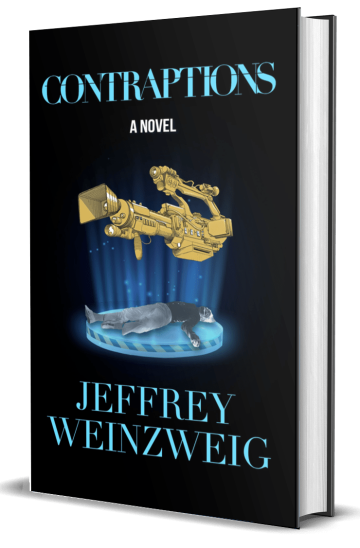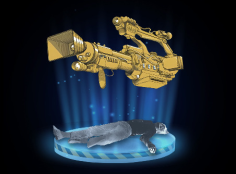
In Contraptions, Jeffrey Weinzweig presents a thrilling exploration of technological ingenuity and its impact on society. The novel’s protagonists, Derek Cannon and Ojo Jenachukwu, are not just inventors; they are visionaries pushing the boundaries of what’s possible in medicine and beyond. Their journey from creating essential surgical instruments to developing groundbreaking devices like the Thermalyzer—a machine capable of capturing images from the past—exemplifies the heights of innovation and the ethical and practical challenges that accompany it.
The Evolution of Invention in Contraptions
The story begins with an innovative solution to a common medical problem: Derek and Ojo devise the “Jennon QT7,” a thermosensitive device to prevent surgical instruments and items from being left inside patients. This invention, designed to alert surgical staff if any item remains within the body following surgery, reveals the book’s first glimpse into the inventors’ dual objectives: creating life-saving solutions while holding professionals accountable for errors.
The pivotal shift in their inventing journey occurs when Derek and Ojo develop the Thermalyzer, a device that surpasses conventional technology by capturing “images back in time” through analysis of residual thermal energy. The Thermalyzer opens doors to possibilities that blend science fiction with forensic potential. By capturing images of moments that have already passed, the machine challenges our understanding of time, perception, and truth. This capacity to record past events serves not only as a tool for discovery but also as a potential catalyst for misuse and exploitation.
Rewards and Risks of Innovation
The Thermalyzer embodies the ultimate risk and reward balance of innovation. It could revolutionize forensic investigations by unveiling past events accurately and definitively. However, the novel also raises questions: Who controls this technology? How might it be used beyond its intended purpose? These questions reveal a critical theme in Contraptions: even the best-intentioned innovations can have unintended consequences.
Through the narrative, Weinzweig underscores the precarious position of inventors like Derek and Ojo, who navigate a world eager to exploit their genius. Their inventions may offer advancements in medical safety and crime-solving, but they also risk becoming weapons or tools for control in the hands of powerful interests. The Thermalyzer’s potential to “see” into the past is awe-inspiring, but its existence in a world of corporate greed and espionage serves as a reminder of the responsibility inherent in every technological advancement.
